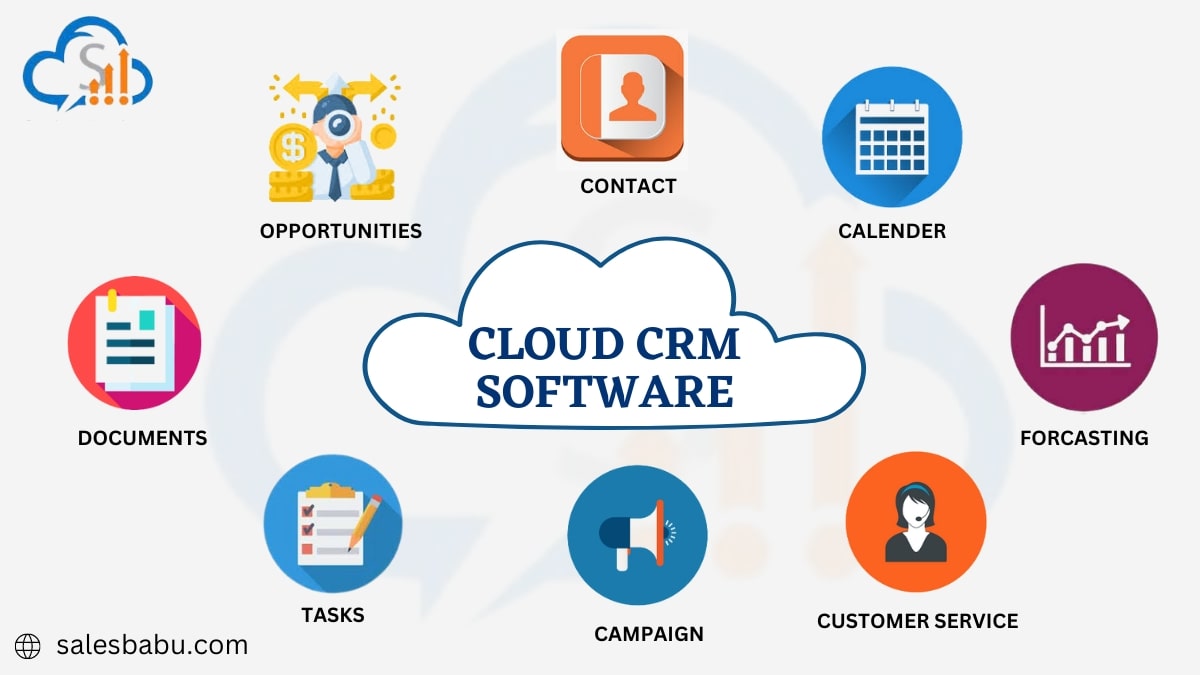In today’s digital landscape, CRM cloud software has emerged as a game-changer for businesses seeking to streamline their operations and enhance customer engagement. With its comprehensive capabilities and transformative potential, CRM cloud software empowers organizations to cultivate stronger relationships, boost sales productivity, and drive marketing effectiveness.
From managing customer data to automating marketing campaigns and providing real-time insights, CRM cloud software offers a myriad of benefits that can revolutionize the way businesses connect with their customers and drive growth.
CRM Cloud Software Overview
Customer relationship management (CRM) cloud software is a cloud-based solution that helps businesses manage and track customer interactions and data. It provides a centralized platform for managing customer information, sales pipelines, marketing campaigns, and customer service interactions.
Popular CRM cloud software solutions include Salesforce, HubSpot, Microsoft Dynamics 365, and Zoho CRM. These solutions offer a range of features and functionality to meet the needs of businesses of all sizes.
Key Benefits and Advantages of CRM Cloud Software
There are many benefits and advantages to using CRM cloud software, including:
- Improved customer service:CRM cloud software can help businesses provide better customer service by providing a centralized view of customer interactions and data. This allows businesses to quickly and easily access customer information, track customer interactions, and resolve customer issues.
- Increased sales productivity:CRM cloud software can help businesses increase sales productivity by providing sales teams with the tools they need to manage their sales pipelines and track their progress. This can help sales teams close more deals and increase revenue.
- Improved marketing effectiveness:CRM cloud software can help businesses improve their marketing effectiveness by providing them with the tools they need to create and manage marketing campaigns. This can help businesses reach more customers and generate more leads.
- Reduced costs:CRM cloud software can help businesses reduce costs by eliminating the need for expensive on-premises hardware and software. CRM cloud software is also typically more affordable than on-premises solutions, making it a more cost-effective option for businesses of all sizes.
Features and Capabilities of CRM Cloud Software

CRM cloud software offers a comprehensive suite of features and capabilities designed to streamline customer relationship management, enhance sales productivity, and automate marketing processes. Its core functionalities encompass customer management, sales management, and marketing automation.
Customer management features enable businesses to centralize customer data, track interactions, and manage customer relationships effectively. Sales management capabilities empower sales teams to manage leads, track opportunities, and close deals efficiently. Marketing automation functionalities streamline marketing campaigns, nurture leads, and measure campaign effectiveness.
Data Management, Analytics, and Reporting
CRM cloud software provides robust data management capabilities, allowing businesses to store and manage customer data securely and efficiently. Advanced analytics and reporting tools enable businesses to gain insights into customer behavior, identify trends, and make data-driven decisions. Comprehensive dashboards and reports provide real-time visibility into key metrics, enabling businesses to monitor progress and optimize performance.
Benefits of CRM Cloud Software for Businesses
CRM cloud software provides numerous advantages for businesses, revolutionizing the way they manage customer relationships, enhance sales productivity, and optimize marketing effectiveness. Its benefits extend beyond customer-facing departments, offering cost savings, scalability, and accessibility benefits that positively impact the entire organization.
Improved Customer Relationships
CRM cloud software empowers businesses to build stronger and more personalized relationships with their customers. By centralizing customer data, it provides a comprehensive view of customer interactions, preferences, and history. This enables businesses to:
- Understand customer needs and expectations
- Provide tailored and relevant customer experiences
- Resolve customer issues quickly and efficiently
- Increase customer satisfaction and loyalty
Increased Sales Productivity
CRM cloud software streamlines the sales process, enabling sales teams to work more efficiently and close deals faster. It offers features such as:
- Lead management and tracking
- Sales forecasting and pipeline management
- Opportunity tracking and reporting
- Automated workflows and reminders
These features help sales teams:
- Identify and qualify leads
- Nurture leads through the sales funnel
- Close deals faster
- Maximize sales opportunities
Enhanced Marketing Effectiveness
CRM cloud software provides valuable insights into customer behavior and preferences, enabling marketing teams to create targeted and effective campaigns. It offers features such as:
- Segmentation and targeting
- Campaign management and tracking
- Lead generation and nurturing
- Marketing automation
These features help marketing teams:
- Identify and reach the right target audience
- Create and deliver personalized marketing messages
- Track campaign performance and measure ROI
- Generate and qualify leads
Cost Savings
CRM cloud software can significantly reduce costs for businesses. It eliminates the need for expensive on-premise hardware and software, as well as the associated IT support and maintenance costs. Additionally, cloud-based CRM software is typically offered on a subscription basis, providing businesses with predictable and manageable expenses.
Scalability
CRM cloud software is highly scalable, enabling businesses to adapt to changing needs and grow without the limitations of on-premise solutions. It can be easily scaled up or down to accommodate changes in business size, customer base, or data volume.
Accessibility, Crm cloud software
CRM cloud software is accessible from anywhere with an internet connection, providing businesses with the flexibility to work remotely or from multiple locations. This enables teams to collaborate seamlessly and access customer data in real-time, regardless of their location.
Implementation and Integration of CRM Cloud Software

Implementing and integrating CRM cloud software can streamline business processes and improve customer relationships. Here’s a guide to help you get started:
Selection and Deployment
Selecting the right CRM cloud software is crucial. Consider your business needs, budget, and technical capabilities. Once selected, deploy the software following the vendor’s instructions, ensuring compatibility with your existing infrastructure.
Customization
Customize the CRM cloud software to meet your specific requirements. Configure fields, workflows, and dashboards to align with your business processes. This personalization ensures the software meets your unique needs.
Data Migration
Data migration involves transferring data from your existing systems to the CRM cloud software. Plan this process carefully to ensure data integrity and minimize disruptions. Use data mapping tools and follow best practices to ensure a smooth transition.
Integration with Other Systems
Integrate the CRM cloud software with other business systems, such as accounting, marketing automation, and customer support. This integration streamlines data flow, eliminates duplicate data entry, and improves overall efficiency. Use APIs, connectors, or integration platforms to facilitate seamless connections.
Final Review

As businesses continue to navigate the evolving digital landscape, CRM cloud software will undoubtedly remain a cornerstone of success. Its ability to streamline operations, enhance customer experiences, and provide valuable insights makes it an indispensable tool for organizations looking to stay competitive and thrive in the modern business environment.
FAQ Explained
What is CRM cloud software?
CRM cloud software is a cloud-based customer relationship management (CRM) solution that enables businesses to manage their customer interactions and data from a centralized platform.
What are the benefits of using CRM cloud software?
CRM cloud software offers numerous benefits, including improved customer relationships, increased sales productivity, enhanced marketing effectiveness, cost savings, scalability, and accessibility.
How do I implement CRM cloud software?
Implementing CRM cloud software involves selecting the right software, deploying it, customizing it to fit your business needs, and integrating it with your other business systems.
Is CRM cloud software secure?
Yes, CRM cloud software providers implement robust security measures to protect customer data, including data encryption, access controls, and disaster recovery plans.